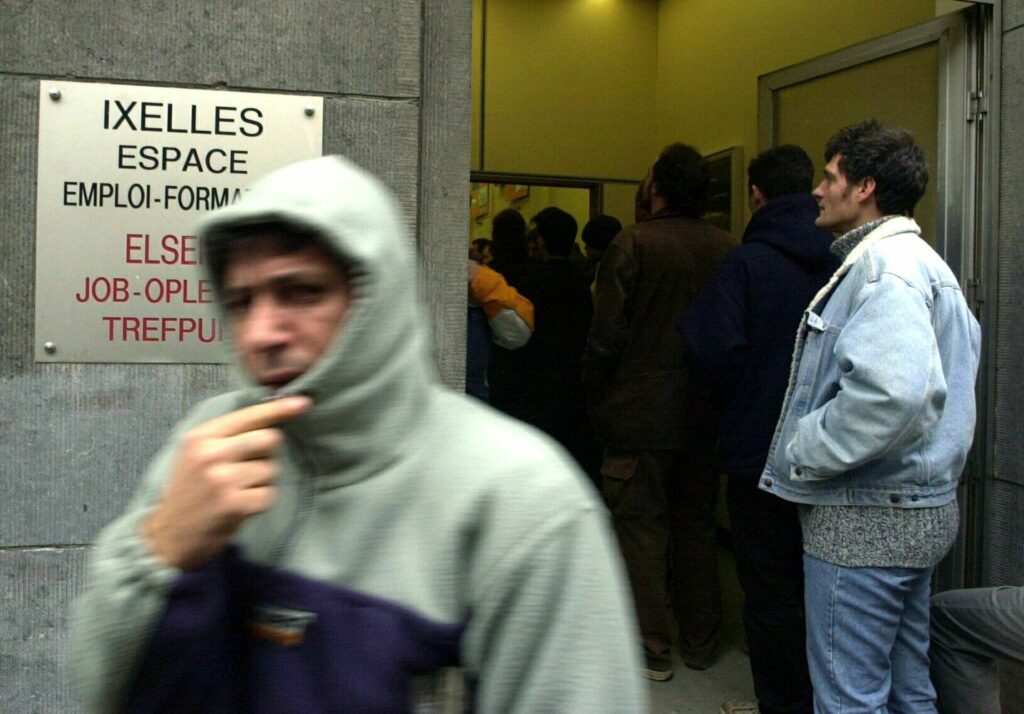More than 80,000 Brussels residents are looking for work, while some 20,000 vacancies remain currently unfilled in the Brussels region. The gap between vacancies and jobseekers in Europe’s capital has various causes, most of which relate to the high demand for educated employees.
The mismatch in the Brussels labour market has only increased over the past thirty years, Bruzz reports, as estimates for job openings are between 13,000 and 25,000.
Knowledge-based economy
Jan Gatz, Spokesperson for Actiris, explains how jobseekers’ level of education is a major obstacle: “In Brussels, six in seven vacancies require people with a medium or high level of education, while the vast majority of jobseekers have no or at most a secondary diploma.”
That mismatch is the most common in the Brussels labour market, and it has increased in the last few decades. “Recently, the number of jobs for the highly skilled has only increased while the number of jobs for the low skilled has decreased - a consequence of the knowledge economy.”
In late May, people with a bachelor’s or master’s degree made up less than 14% of the number of jobseekers. Meanwhile, the demand for highly educated employees is growing, as it increased by 66% in the last 20 years. Only one in seven vacancies requires little to no training.
Labour sociologist Christophe Vanroelen calls it the ‘Brussels paradox’; the capital mainly offers high-skilled service jobs, while the majority of jobseekers have little to no education.
Language requirements
Another hurdle in the capital is bilingualism. “Half of the vacancies in Brussels indeed require knowledge of both French and Dutch, and sometimes also English,” says Gatz of Actiris.
“But only one in five jobseekers has a basic knowledge of the other national language. Barely 7% have a good knowledge of the other national language.” Only 4 to 5% of jobseekers at Actiris have a file in Dutch.
“We often even look for trilingualism because we are involved in many international projects,” said Yannick Van Aelst, senior recruiter at construction company Besix. “Bilingual administrative staff is no longer so easy to find.”
Working conditions
Another issue is that working conditions do not match employee expectations. People are simply not interested in work that has to be performed in unpleasant conditions for a salary that does not sufficiently cover the effort. “Just think about the cleaning sector,” states Stijn Baert, Professor of Labour Economics.
About half of all jobseekers have been unemployed for more than two years. Gatz says that is usually the result of a combination of obstacles: “Often, it’s not just a matter of a lack of diploma or language skills. For example, a single mother with three children may find it difficult to work during punctual office hours or in a company with evening shifts.”
Closer to home
Mobility is another factor that forms an obstacle in finding work, as people generally prefer working closer to home. “There is a lot of competition between companies in Brussels and it is no longer so obvious to attract Flemish people to Brussels,” Van Aelst from Besix said.
An example is Dutch-language education in Brussels, which no longer attracts Flemish teachers, as they are finding better job offers in Flanders instead. “They get great offers locally and don’t feel like standing in a traffic jam for another hour and a half.” That tends to leave Brussels’ demand for Dutch-speaking profiles unfulfilled.
Many ‘inactive’ people
Finally, many people are considered ‘inactive’: meaning that they are not looking for a job. “Only a few European countries have more inactive people than Belgium. This means that employers have to fish from a much smaller pond,” explains professor Baert.
In Brussels, one in four people are inactive. For comparison, the European average of people considered inactive is 19.7%.
Solutions
Professor Baert considers one point crucial in the elimination of the mismatch in the labour market: training. “In addition, the unemployment benefit system must be more transparent.”
He also says work must be made “drastically more interesting and more rewarding”, and the “gates of inactivity must be better guarded.”

